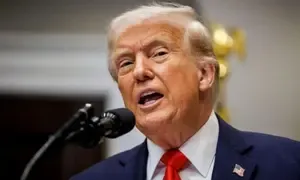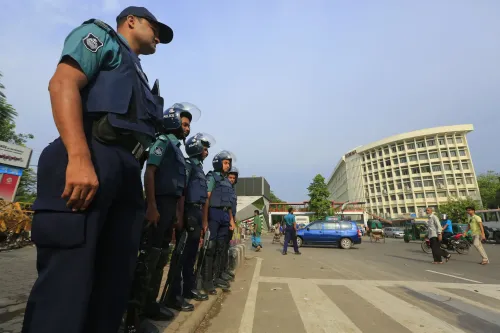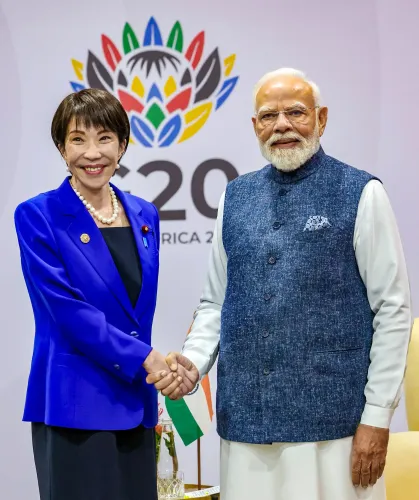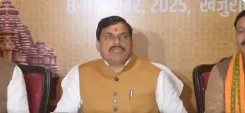Trump Initiates Direct Negotiations with Iran Amid Nuclear Crisis

Synopsis
Key Takeaways
- Trump announces direct talks with Iran.
- First meeting scheduled for Saturday.
- Failure to agree puts Tehran in great danger.
- Maximum pressure policy on Iran continues.
- Nuclear weapons possession by Iran is unacceptable.
Washington, April 8 (NationPress) The United States and Iran are engaging in direct discussions, with their inaugural meeting set for Saturday at “almost at the top” level, as stated by President Donald Trump on Monday. He emphasized that a failure to reach an agreement would place Tehran in “great danger”, as they cannot be permitted to possess a nuclear weapon.
The American leader did not disclose the location or the officials involved in the talks. However, he repeatedly mentioned in a news conference he held with visiting Israeli Prime Minister, Benjamin Netanyahu, that the discussions would be at the “very top” level and “almost at the highest level”.
This announcement from Trump follows weeks after he initiated a public invitation to talks, which was rejected by Iranian Supreme Leader Ayatollah Khamenei.
Trump has maintained a strategy of maximum pressure on Iran, which began during his first term after he withdrew from the 2015 JCPOA (Joint Comprehensive Plan of Action) — also known as the Iran agreement, negotiated by President Barack Obama among the P5 UN Security Council members: the US, UK, France, China, and Russia, along with Germany as +1, and Iran. This agreement lifted harsh UN sanctions in exchange for Iran agreeing to halt its nuclear weapons program.
“We are having direct talks with Iran,” Trump announced, stating they will commence on Saturday. “We have a very significant meeting, and we will see what transpires. I believe everyone agrees that reaching a deal would be preferable to pursuing the obvious. The obvious is something I prefer not to engage in, nor does Israel, if they can avoid it.”
The “obvious” was a subtle allusion to his willingness to consider military action should the talks fail.
“If the discussions with Iran are unsuccessful, I believe Iran will be in significant danger, and I regret to say it is in great danger because they cannot possess a nuclear weapon. It’s a straightforward equation. Iran cannot have a nuclear weapon, period.”
Interestingly, the American president expressed concerns regarding nuclear-armed nations that he believes “should not have” nuclear weapons.
He did not specify these nations nor outline his plans concerning them. Currently, nine countries are thought to possess nuclear weapons: the US, Russia, France, the United Kingdom, China, India, Pakistan, Israel, and North Korea.










